Canada I Miss You






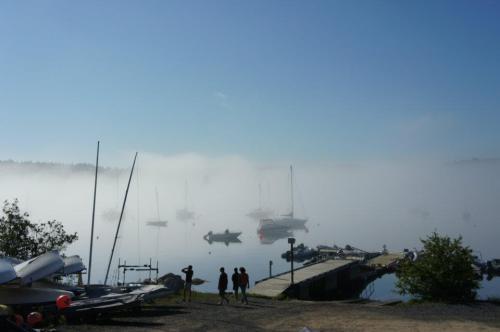



Don’t go to Cuba with your lover, go with your best friend.
Drink, dance, kiss, ride, swim, dive.
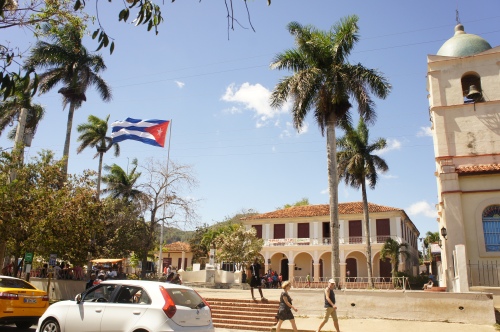

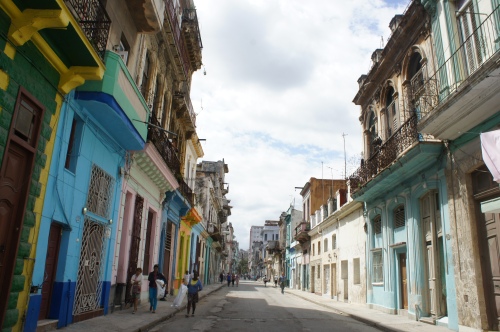
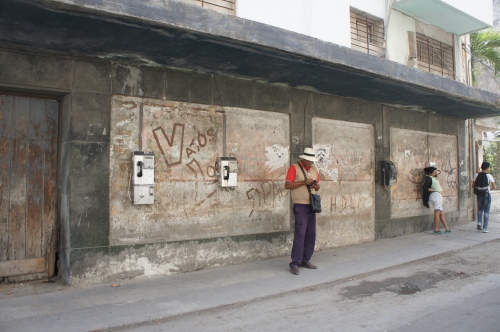

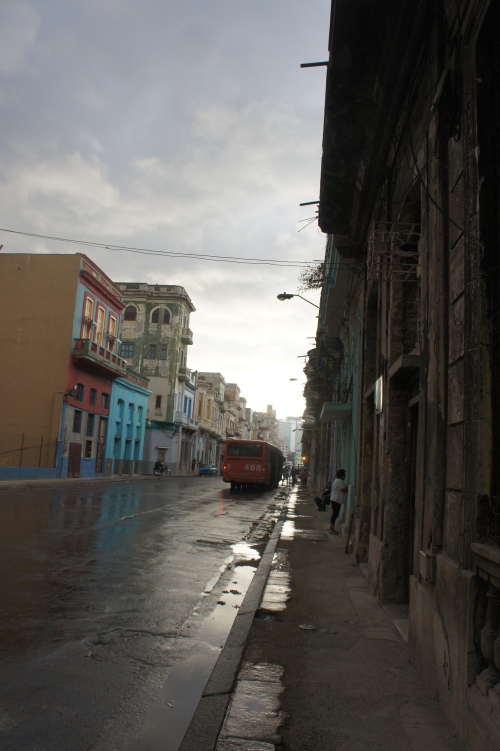
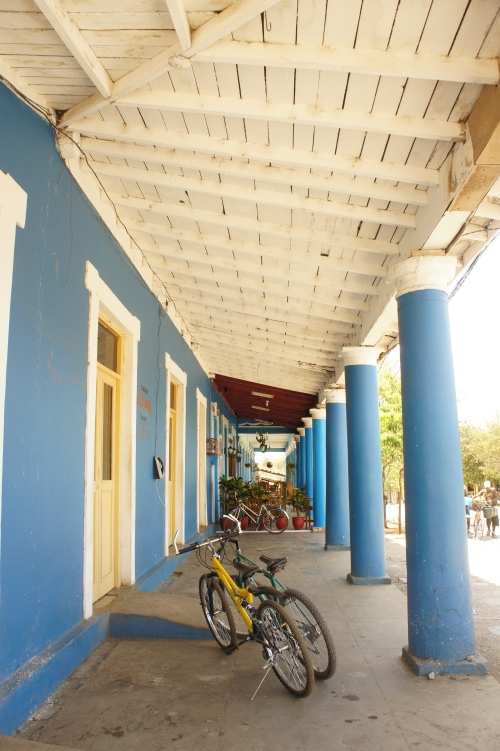





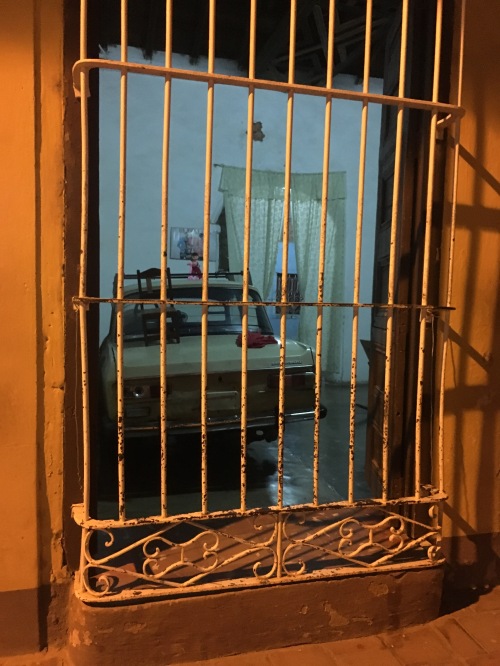
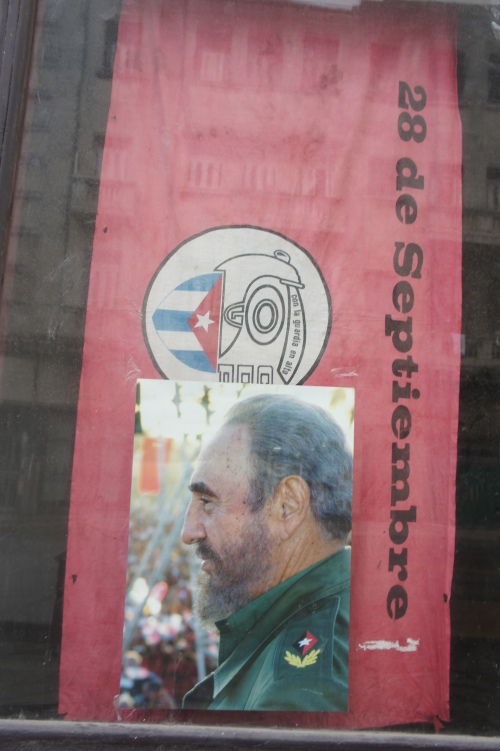
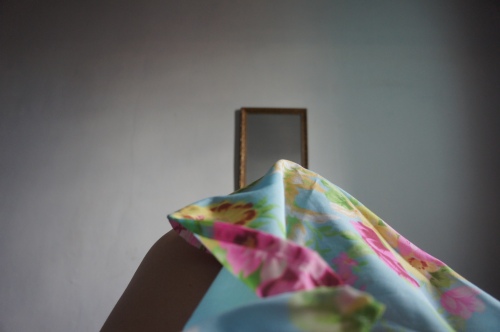





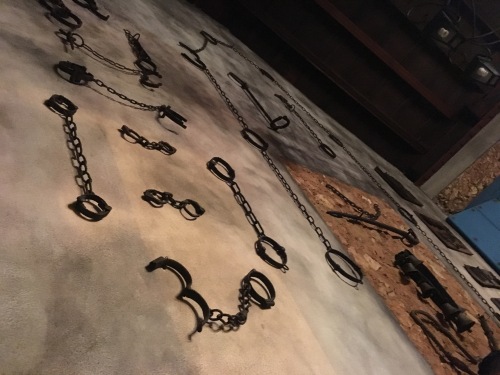


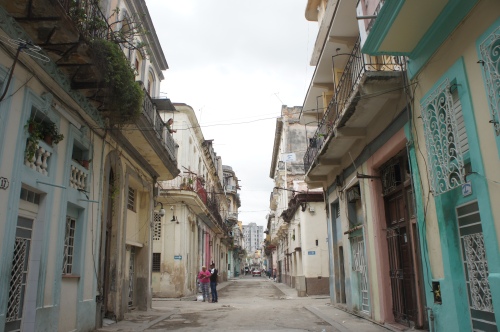

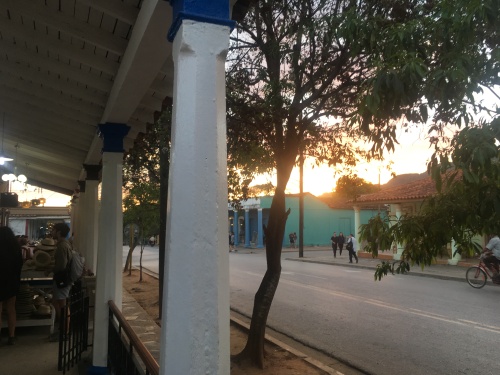
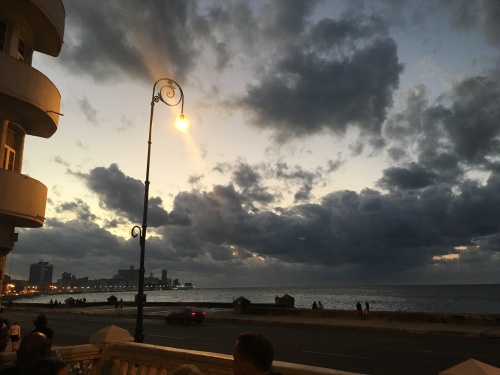
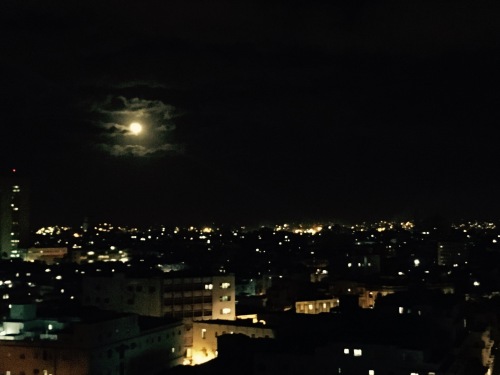



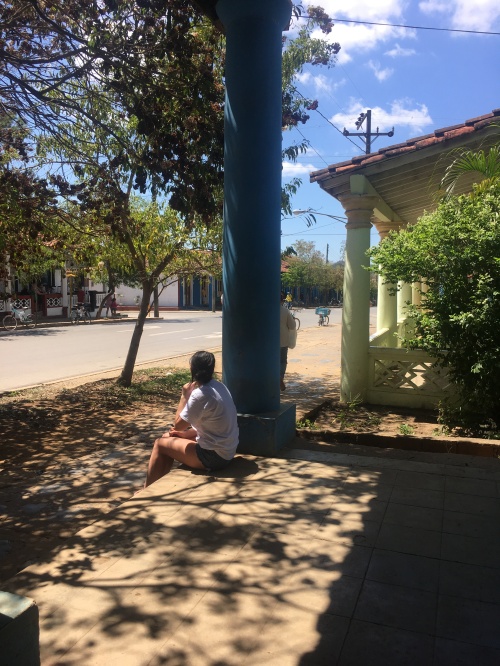
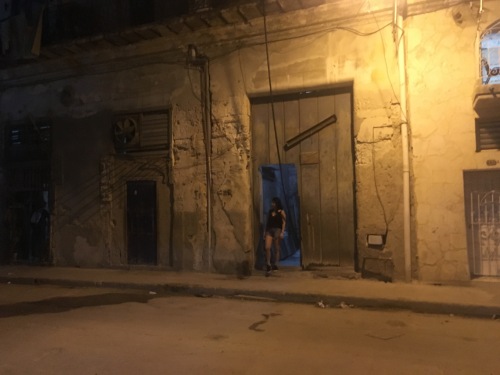







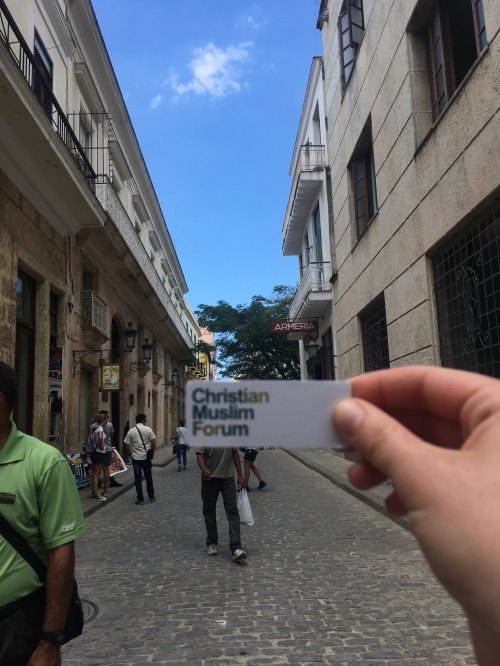
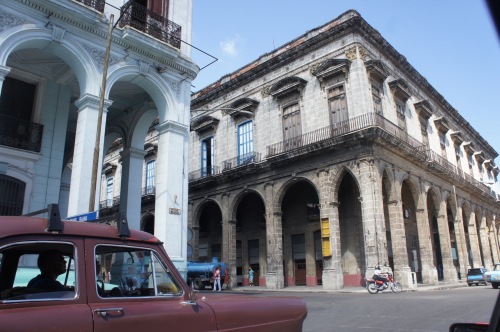
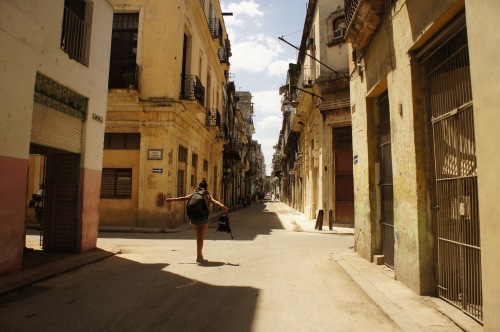
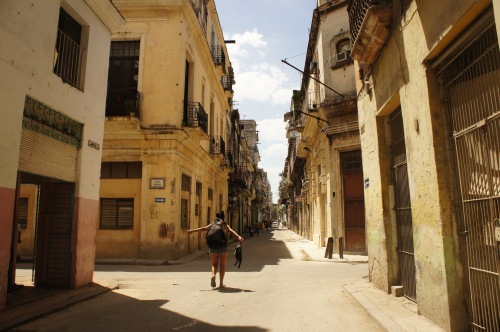



I’ve grown up on this estate in South London. Its full of unexpected jewels and dark secrets but with this collection I want to show how blocks of flats can be intimate and colourful as well as big and expressionless. There is no glamour in growing up here, but I do think it has an element of beauty. The buildings are symmetrical, street lights dot the darkness and the skyline is ultimately urban but with glimpses of nature such as trees and birds.
I travelled to Montreux on Lake Geneva in the summer of 2011. We drove there from London via many places in France and Switzerland. Our return journey took us through places such as Salzburg, Munich and Amsterdam. Europe and especially the Alps are truly stunning in Summer. The sun beating down on the steep Swiss slopes, the reflections that bounce off the blindingly beautiful blue lakes and the winding roads that lead so far into the clouds you wonder if you’ll fall off the edge of the world….
This is a small collection of the photographs I took on my journey.
More to follow….
“It is fair to say that without Lautrec, there would be no Andy Warhol”
Cora Michael, The Metropolitan Museum of Art
David Hockney or Roy Lichtenstein are names synonymous with the Pop Art genre, however there is one artist who although completely unconnected in history, time and culture was a forefather and laid the foundations in the Western psyche for Pop Art to be as popular as it became: Henri Toulouse-Lautrec.
Henri de Toulouse-Lautrec cut an unusual figure in Paris during the late 19th century. An adult sized torso paired with legs that stopped growing aged 13 meant his eventual adult height only reached 5″1 and was probably also for this reason that he sought solace in the Parisian brothels of Montmartre.
The Parisian ladies of the night accepted all types of client; from aristocrats to the flâneurs who roamed the streets of Paris, to social outcasts who were unable to procure affection from women unconnected to the vice underworld. It was this setting he found acceptance , amongst the winding alleys and late night drinking haunts, and it was here where Toulouse-Lautrec made his home.
His unusual appearance contributed to the unconventional life he led in Paris until his early death aged 36 after staying at a sanatorium in Malromé, South East France. Years of inbreeding between his aristocratic ancestors, his grandmothers were sisters, meant he suffered congenital health conditions that impacted on his mobility. During the years in which he was immobile, because of two broken legs, he began to paint and his talent for painting blossomed.
After moving to Montmatre at the age of 18, Lautrec surrounded himself in the bohemian world of circuses, dance halls, nightclubs and racetracks. He began to document the individuals in his world through his work.
It was a cultural scene brimming with iconic artists such as Degas, Van Gogh and Manet. There he met this artistic cohort who would remain his friends for the rest of his life. They would party and drink into the nights discussing new and improved painting techniques. It is the world that created the Impressionists.
Lautrec’s Impressionist work is beautiful, heartfelt but also dark and melancholy. He developed his unique style of work with the help of Fernand Cormon at his studio and together they honed his techniques.
The Impressionists had a large impact on his art, as did the subjects he painted, but it was his love for nightlife and the way he symbolised it that led him to be considered a pioneer in poster art. He offered to create advertisements for his friends who ran venues and nightclubs and most famously the Moulin Rouge.
By adapting the fashion at the time for Japanese style (characterised by asymmetric composition and flat areas of colour) and combining with the growing art of the picture poster, Lautrec began to immortalise his friends and advertise their venues.
Asymmetric compositions, vibrant and flat areas of colour can also be used to describe the Pop Art movement of the 1950’s/60’s. It was popular art that captured the sentiment of its subjects. What both pop artists and Lautrec managed to depict is the vivid, colourful emotions of the cultural setting of their era.
Pop Art was an expression of modernity post world war II; full of colour and vibrancy which caught one’s eye and invited the viewer to imagine and Lautrec’s era in Paris bore similar characteristics to the post war cultural revolution. Similarities such as available disposable incomes for workers, booming economy and changes in society’s attitudes towards having fun characterised both periods. These elements also contributed to a surge in creative advertising and companies sought to capitalise on society’s optimism.
The style of Pop Art developed out of the American artists’ search for more bold and striking ways to captivate their audience. Their search led them to dramatic styles with the aim to distance art from the skilful and clever commercial materials that the advertising industry had crafted. In this respect Lautrec’s work and the ideology behind Pop Art differ. Pop Art was a backlash against mass consumer culture, Lautrec on the other hand sought to celebrate his culture through advertisement. However both pop artists and Lautrec used the same type of symbolism in their work.
The symbolism used by both Pop Art and Lautrec centred on female characters mostly. Prostitutes and housewives are culturally and socially polar opposite, yet both are used to symbolise their own epoch. Prostitutes encapsulated late 19th century Parisienne “joie de vivre”. Lautrec’s favoured subjects, prostitutes Jane Avril and Louise Weber ‘La Goulle’, epitomised his knowledge of women in Paris at that time. In comparison Lichtenstein used stereotypical American women in tragic emotional states to convey women who
“look hard, crisp, brittle, and uniformly modish in appearance, as if they all came out of the same pot of makeup.”
John Coplans, 1972
Both artists chose to create symbolic pieces of work by using women as icons of their time. The classic American housewife: made up perfectly yet weeping from the woe her husband gives her. The Moulin Rouge prostitute: makes her living by giving pleasure to men, kicking up her legs as if they could never fall off, throwing back her head as if to say she takes it all in her stride.
“His (poster) masterpieces define the limits of poster style: Lautrec is the embodiment of internal, personal vision with a point to make, not, to be sure, a moral judgment, but rather an amused, wry observation on the passing scene. “
Jack Rennert, 1990
Rennert’s description here could be applied to Pop Art. David Hockney’s paintings often depicted subjects from a personal perspective on an observed passing scene. Although Hockney and Lichtenstein didn’t produce posters, their work would not have looked out of place advertising a place or activity.
Hockney could be advertising a trip to Paris
Lichtenstein could be advertising a jewellers
Likening Hockey and Lichtenstein’s work to advertisements should not be taken as a flippant comparison, far from it. What the comparison is meant to show is the ease of which you can apply passing observations of personal moments or human activities to tap in to a cultural consciousness.
Tapping into a public’s cultural consciousness is what poster art and Pop Art really excel at. It was what Lautrec excelled at. Warhol or Lichtenstein’s famous works are still innately American and are still used to represent not only 1950’s/60’s American but are also used in modern day American pop culture.
If you walk the streets of modern day Paris you will find in bookshops and on postcard racks the images and art Lautrec created over 100 years ago. They still symbolise Paris. They still symbolise Parisienne spirit. This is the legacy Lautrec left, his poster art was the original Pop Art. It is still popular today.
P.L.M.R
With white masks, black hoods and fire lit torches you could be forgiven for mistaking this group of right wing extremists for a Da Vinci Code re-enactment of sorts, but you would be wrong.
The Immortals are a German neo-Nazi group who specialise in publicising their fascist views through the use of flash mobs and they are becoming popular with students and the middle classes in Germany.
With a catchy motto and their stylised flash mob appearances The Immortals are tapping in to a growing sentiment in Germany that the German race needs protection from ‘outsiders’.
“Your Life is Short, Make it Immortal”
Germany isn’t the only country experiencing a rise in fascism. In Greece and Hungary extremely conservative political parties are achieving seats in Parliament and their popularity is growing. With the German public turning to socially conservative groups because of economic instability it begs the question: can history repeat itself? Adolf Hitler sold a dream to financially struggling and displaced young Germans in the 1930’s, are modern neo-Nazi groups doing the same?
The People’s Association – Golden Dawn in Greece is a conservative extremist political organization and party and they have succeed in gaining 18 seats in Parliament since the General Election in 2012. They garner support from the Greek public by using a manifesto based on concerns for austerity and the economy, unemployment as well as fierce anti-immigration rhetoric. Racist attacks on immigrants have risen increasingly.
Exposed by Channel Four for having fascist ideologies and neo-Nazi beliefs they set up soup kitchens to attract support from white ethnic Greeks struggling to make ends meet. They recruit youngsters through the Golden Dawn Youth Front who distribute fliers with nationalist messages in Athens schools, even setting up a concert ‘Rock Against Communism’ to draw in young support. Gruesome racist rhetoric is used by party members to explain what they’d like to do to immigrants.
“”We are ready to open the ovens. We will turn them into soap .. to wash cars and pavements. We will make lamps from their skin”
Alexandros Plomaritis, a Golden Dawn candidate in the 2012 election
Europe is facing a new battle and it is using children and politics as the battleground. Just as in Greece, the German neo-Nazi groups target children and youths to carry their message forth and indoctrinate them. They target children by using summer youth camps as a place to instruct them on how to live as pure Aryans and rid Germany of ‘non-Germans’.
“We want to keep the German people alive with our own biological vitality…Imagine a country called Germany that’s filled only with Africans, with us importing nice little sweet n****r children”
Udo Pastörs, Deputy Leader of the National Democratic Party of Germany
Modern day neo-Nazis use text messaging, social media, social networks and technology to spread racist and fascist messages to young people and those they target are young children, students and unemployed youth and the middle classes. They are deliberately recruiting educated people so that the movement can call on their skills as Lawyers or Doctors in times of need. The technology and social media outlets they use as well as the flash-mobs mean the spread of their ideologies is far quicker than Hitler could ever have dreamed of.
The Holocaust does not feature in the Jobbik Party manifesto in Hungary. Jobbik is intent on making sure Jews do not invade their precious motherland. It is also Hungary’s third largest political party. The trade union of Hungarian police officers prepared for action allegedly printed in their newsletter:
“Given our current situation, anti-Semitism is not just our right, but it is the duty of every Hungarian homeland lover, and we must prepare for armed battle against the Jews.”
Judit Szima, a Jobbik candidate for the European Union in 2009 and Editor of the newsletter
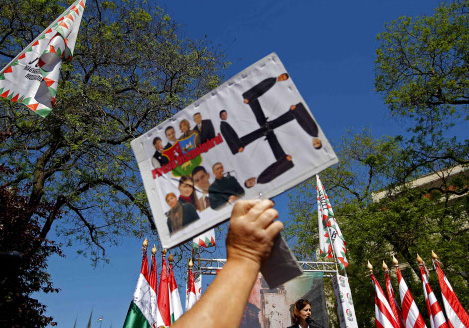
An Israeli newspaper inquired into Szima’s view on the matter and found that she “didn’t see anything wrong with the content of the article”. Szima also ran as a candidate for the Jobbik Party in the the 2009 European Union election.
The fact that an extremist far-right party has such congenial relations with the Hungarian police force is surely a cause for concern. By definition the police force of any country should behave on behalf of the government in charge, not the third largest political party in the country.
Allegedly Krisztina Morvai, a proposed future nominee for the position of the president of Hungary, had something to say of Hungarian Jews’ opinions of her saying in an open letter to a Jewish New Yorker that she…
“would be glad if the so-called proud Hungarian Jews went back to playing with their tiny circumcised dicks instead of vilifying me”
Between 2003-2006 Morvai was a member of the Women’s Anti-discrimination Committee of the United Nations. Educated at Kings College London and graduating with a degree in Law, Morvai does not outwardly seem to fit the neo-Nazi stereotype. She is well educated, articulate and ‘liberal’. In 1989 she received the first ever British Government scholarship for students in central Europe and Prime Minister Margaret Thatcher personally presented the award to her, not many fascists can boast that.
What her example shows is that there is a new breed of fascist. A highly educated fascist with the ability to locate mistrust and vulnerability in the population and divert those feelings towards anti-semitism and fascist ideologies. It is a dangerous mix. Neo-Nazis should no longer be viewed as skin head hooligans, they have evolved.
The poisonous, racist and anti-Semitic words of Morvai, Pastors and Plomaritis show that far-right extremism in Europe is entering a new phase in its history. Coupled with modern technology and economic instability Golden Dawn, Jobbik and The Immortals are creating a sinister and pervasive attitude in a Europe that has already been savaged and torn apart by two world wars.
Beate Zschaepe, 38, is currently on trial in Munich. Accused of being part of the National Socialist Underground (NSU) she is alleged to have had involvement in 15 armed robberies, arson and of attempted murder via two bomb attacks. She has been charged with involvement in the murders of eight ethnic Turks, a Greek immigrant and a German policewoman between 2000 and 2007.
What is worrying about her trial is that the German secret service knew about her extremist cell and had tracked them yet they claim to have had no idea of her involvement in the murders of ethnic Turks. They claim to have believed they were carried out by the Turkish Mafia. There have been whispers that even the German secret service has right-wing sympathies and this has compounded the problem of rising neo-Nazism in Germany.
Governments are not doing enough to crush the emerging fascist movements and in Zschaepe’s case to even keep on top of neo-Nazi terrorists. Several high-ranking security officials that include the head of Germany’s secret service have resigned over blunders made during their tenure. Heads have rolled but has anything been learned?
Sebastian Edathy, the chairman of the investigation into German secret service failures, has said that the potential for far-right violence was massively underestimated even as some officers instinctively blamed the victims. This shambolic set of affairs on such a serious issue is frightening. Decisive action by governments is needed to quell the attraction to far-right extremists of the general populations of European countries.
Who stands to gain from the rise of political extremism in Europe? We know who will lose out if their power and influence grows – Jews and immigrants, but with collectively flaccid responses from Greek, Hungarian and German governments it doesn’t seem likely there will be improvements in their policies any time soon.
For the Channel 4 report on Golden Dawn click here
For information about help and support against anti-semitism click here
P.L.M.R
The London Underground is a hostile place. Its dog-eat-dog during rush hour, forcing yourself on to a tube crammed full of business suits and wafts of body odour drifting around your nose isn’t pleasant.
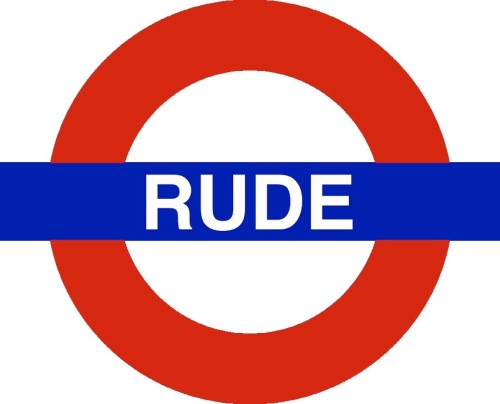
You would have thought Londoners understand that travelling to work on the tube entails sacrifice of personal space, unpleasant smells and getting your shoes dirty; not for some…
On the journey to work one morning this week I was pleased at how my daily commute was going. I had a seat on the first available tube, it wasn’t too hot in the carriage and I had enough room to read the morning news on my phone. Then a woman sitting next to me kicked the man standing in the aisle in front of her really hard.
I was shocked that she kicked him so hard but I was even more shocked at what came out her mouth next “You knew I was going to kick you because you’ve stood in my foot twice already, what the fuck is wrong with you”
The man turned around and said that he was sorry he hadn’t noticed to which she replied “Yes you did dickhead, you knew you had stood on my foot, obviously I’m going to kick you” Ridiculous.
I’ve clearly been living away from London too long because I couldn’t believe what I was witnessing. As a born and bred Londoner, having gone to secondary school in Central London, I know full well what the morning rush hour involves. This woman was also a Londoner, a south London accent wouldn’t escape me anywhere. So why was she being such a bitch?
What should this toe-treading gentleman have done instead of the docile apology he produced. What would Boris Johnson have done? Would he have issued a meek response or responded with a sharp dismissal? Would Ken Livingstone have handled the situation in a more approriate manner? Livingstone is known for using public transport regularly so I would be interested to hear his view on the way Londoners treat each other.
The amount of anti-social behaviour I have witnessed riding the tube throughout the years has been hilarious. I love London Underground but my god are there some hilarious stories.
I’ve seen people’s bags get caught in closing doors because they were to busy chatting to a mate, only to have the tube depart the platform with the bag still hanging out until the next stop. Drunken revellers indulging in explicit sexual encounters in full view of other passengers with not a care in the world. Public domestic arguments about affairs and other topics to the enjoyment of a fully occupied carriage. The most frequent distasteful behaviour though is probably the worst…men who watch female passengers applying make up on their way to work and masturbate under a newspaper. This is unfortunately a regular occurrence.
But seeing a fully grown woman kick another passenger simply for unknowingly stepping on her toes, that shocked even me. The normal reaction would have been to say “Excuse me, you have stepped on my foot a couple of times now, please don’t do it again” but in London maybe thats not good enough for some, the unforgiving rush hour claimed another victim when this man boarded the train.
I wanted to tell her to shut up and stop being so childish but, having seen a recent trend of videos on YouTube of racist and abusive passengers ranting at people on the tube, I decided against it, I didn’t want the hassle of getting involved in someone else’s battle purely on principle. With hindsight I would have liked to have said something.
When friends or partners decide to treat each other with disregard in public it is a bit of a social faux-pas, but its just embarrassing to see London folk treating each other like this. Just because we live in the biggest city in Europe, doesn’t mean we have to behave like children just to protect our personal space. It doesn’t quite scream Olympic spirit.
Social Psychology teaches us that society is what relates us to other people, in the sense that we have something in common with other people. Its argued that human beings follow the rules that society prescribe to us. All individuals influence society to the same extent, which results in the fact that you cannot have an individual without influence from society and there cannot be a society without influence from individuals.
With this in mind, what or who influenced this woman to behave in an aggressive mode of Londonism? Is it the way the city works in general, how badly her morning had gone or the job she hates? Maybe it was just the type of person who stepped on her feet. It could even have been Boris’s smug face smiling back at her from the Metro…
After putting her headphones back in and muttering “Prick” under her breath the journey continued to the next stop in awkward silence, the rest of the carriage having been witness to her outburst also seemed to me to be a bit embarrassed that they too hadn’t said anything about her rude behaviour.
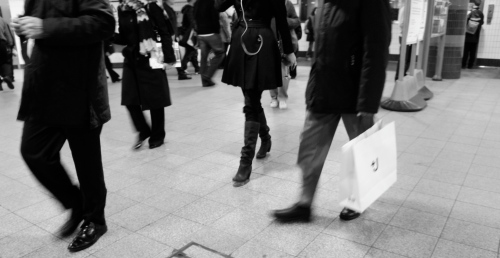
Next time I will say something, or maybe I’ll film it, either way I don’t want to be that person who by failing to hold rude people to account tarnishes my hometown’s reputation. London is a big and exciting city full of uniques experiences, this experience is unfortunately not unique and it would be a shame if people thought that Londoners are ok with being treated like this by their own.
For information on Transport for London visit their site here. Read interesting updates and events on the tube here and find tube tales, facts and miscellanea about London Underground check out the Facebook page here
Get in touch if you have any funny or unusual stories about travelling on the tube, I’m sure everyone must have at least one…
P.L.M.R
All Photos © P.L.M.R 2013
In a world without colonial ’empires’ is it still ok for London to control other parts of the world?
“Take their house, boat, their bling…” just don’t take their life…?
Baroness Scotland has urged Jamaica to abolish the death penalty. It is easy for British citizens to understand they are expected to heed and observe British law and all the punishments that come with breaking it. If you are from a Caribbean Island that still has its court of appeal based in London however, you may feel differently.
Does London have the right to tell other countries who they can and can’t kill?
Amnesty International conducted a report in 2011. Four people were sentenced to death that year but no executions were carried out. The Jamaican government wants to reverse a 1993 ruling by the Judicial Committee of the Privy Council that execution after five years on death row is inhuman and degrading. Capital punishment takes the form of hanging in Jamaica.
“The Privy Council has been viewed by some critics as a court that actively frustrates the execution of the death penalty, which, at least nominally, remains on the books of most Caribbean territories, despite very few hangings in recent decades” David Rowe
Jamaica has taken appeals to the Privy Council since the 17th century. In overseas territories like Jamaica where the death penalty is still in use, the Privy Council in London holds supreme judicial power over final rulings, even though capital punishment in the UK was abolished in 1965.
West Indian islands like Trinidad and Tobago and Jamaica have seen homicide rates rise considerably over the last 20 years with Jamaica having the highest murder rate in the world in 2005 with 1,674 murders.
That makes a murder rate of 58 per 100,000 people. In 2008 Jamaica’s Parliament voted to keep the death penalty. A moratorium had been in place since 1988 meaning all death sentences were suspended, the 2008 ruling reversed this.
On 2 April 1982 General Leopoldo Galtieri set in motion an invasion of the Falkland Islands. An embarrassing defeat followed for the Argentine Military regime and the beginning of what can now be described as a fully fledged democracy.
649 Argentine military personnel lost their lives during the conflict that lasted 74 days, needless to say there is nothing that can be seen as benefitting Argentina from the short war.
There is no doubt that the current President, Cristina Fernandez de Kirchner, sees regaining sovereignty of the islands as a politically and strategically astute step in strengthening Argentina’s relevance on a global arena.
De Kirchner states her motive is to restore “territorial integrity” to the Argentine Republic, critics argue that natural resources recently found near the Falklands is the probable catalyst for fresh tensions between the two countries.
What President De Kirchner, regardless of her motivations, has ceaselessly highlighted is the relevance of colonial jurisdiction. A letter to Prime minister David Cameron from De Kirchner in January 2013 quoted a United Nations in proclamation from 1960
“An end colonialism in all its forms and manifestations”
Jamaican-American lawyer David Rowe says some jurists believe that the Privy Council is an important part of the Separation of Powers “investors are confident in it and Jamaicans, who generally do not trust their politicians, feel safer.”
Do Jamaican citizens believe they need a British judicial body to maintain stability in Jamaica? Rowe asks “Are we outsourcing justice because we cannot trust ourselves?“. It is this contentious point to which attention should be focused.
Do former colonial territories maintain the stability they long for by keeping a connection to their colonial roots? Distinguished Jamaican jurist Patrick Robinson who sees the fascination with the Privy Council as part of a Caribbean inferiority complex.
The Falkland Islanders voted in a referendum on March 12th 2013 to remain a British overseas territory. They share their highest court of appeal with Jamaica in Privy Council.
They may not have capital punishment, but they showed the world how they feel about colonialism and its remnants, they prefer it for the time being. The Caribbean islands that still adhere to colonial jurisdiction have not yet decided whether they are happy to have the Privy Council decide death row inmates fate.
So what of colonialism in all its forms and manifestations? Why do countless commonwealth dominions still adhere to British law, or for that matter the British Crown? De Kirchner has ironically extolled the virtues of colonialism, but for some its clear that colonialism remains relevant and useful.
P.L.M.R